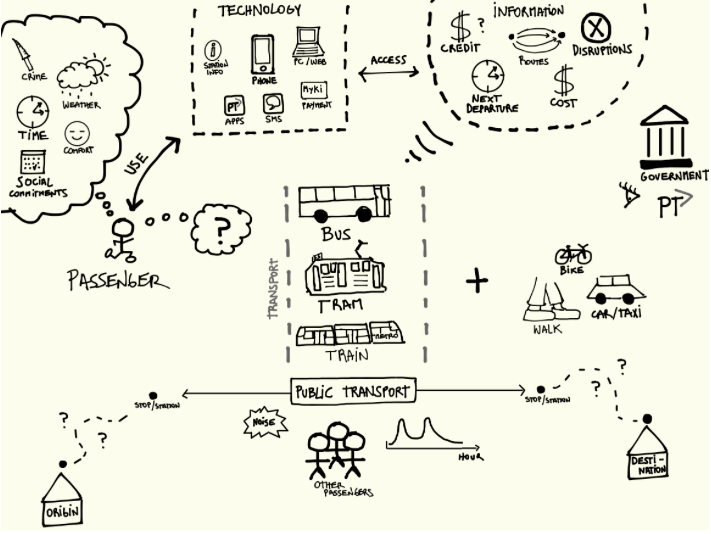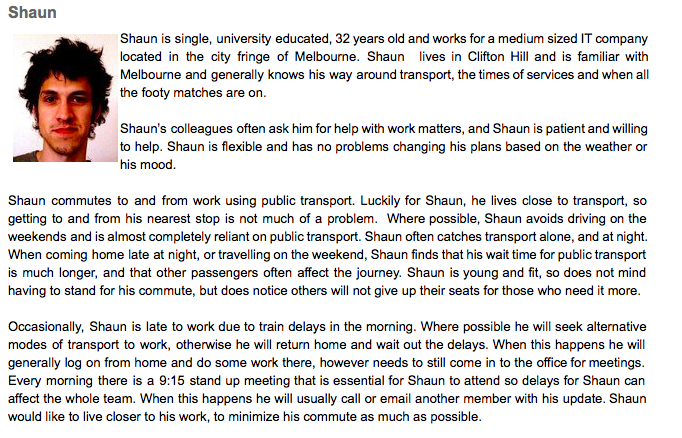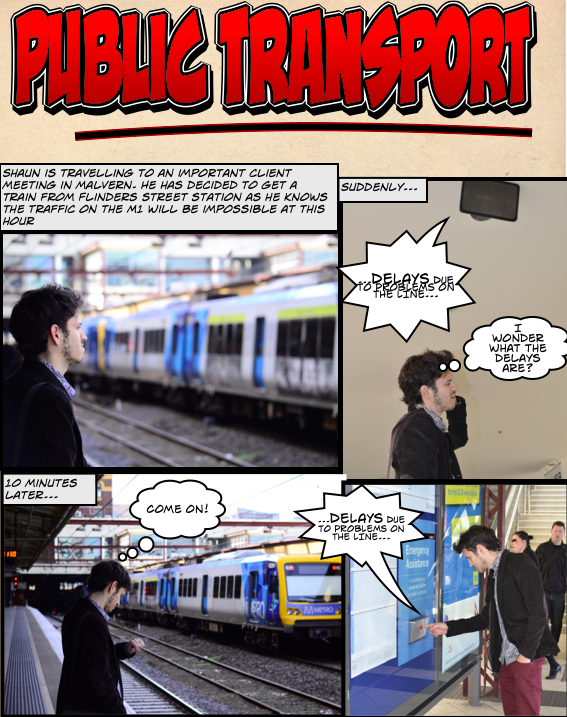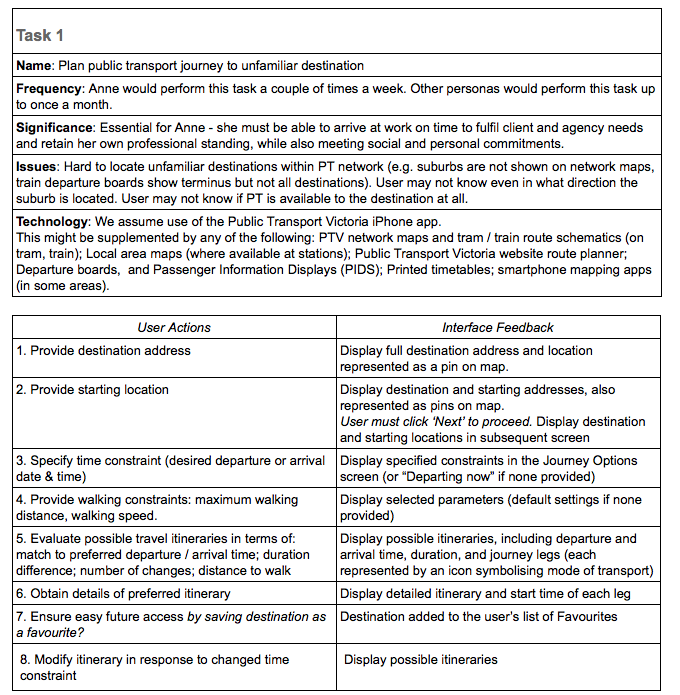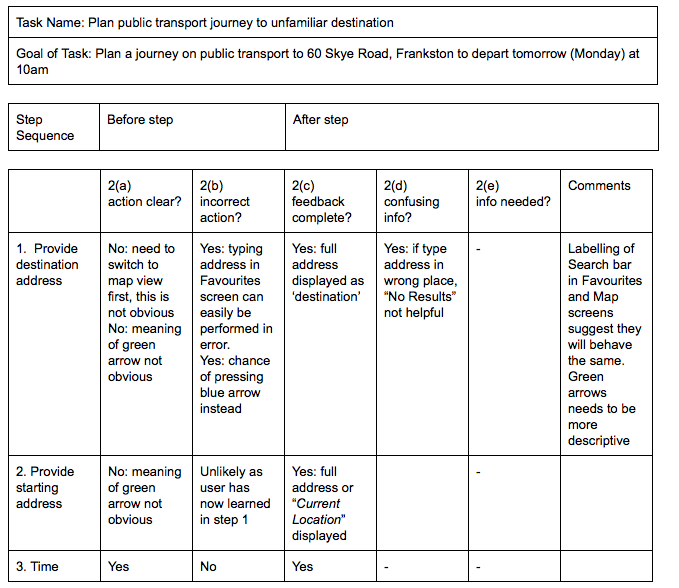Public Transport - User Needs Analysis
Theoretical analysis of metro-Melbourne commuters needs and how well current technologies are meeting these.
UX Process
Part 1: Understanding the problem
- Conducted interviews with P.T users to understand user goals, problems, issues and technology used
- Created rich picture to understand the problem
- Created personas to understand the problem from the users perspective
- Created picture scenarios to understand the problem from the users point of view
Part 2: Evaluate current technology
- Create tasks - step by step instructions of user actions and expected system responses
- Conduct cognitive walkthrough (CWT) by performing each task and identifying if:
- The task was clear
- Incorrect actions were taken
- Feedback was complete
- Information was clear
- No more information was needed
- Clear action complete
- Identify opportunities from results
Results
Current public transport usage:
- Weekday travel:
- 50% work commute
- 50% university commute
- Weekend Travel
- 83% personal commitments
- 17% work and personal
- 0% work only
Current technology used regarding public transport:
- 83% tried some sort of Smartphone app to obtain transport information
- 67% use an app consistently - 33% classify usage as 'frequent'
- 50% used PTV websites - 0% use it consistently
- 33% use non-digital resources (broachers, station based information)
Low conversion from first time user to regular users suggested current technology was not meeting needs.
CWT findings:
- Mapping issues - confusing placement of controls
- Poor affordances - lack of visibility and unclear iconography
- Conflicting information - timetables are not real-time so differ from 'disruptions'
Opportunities:
- Localised information for better UX
- Geolocalisation for nearby information to display
- Push information vs the current pull of the PTV app
